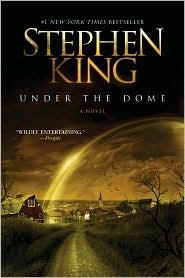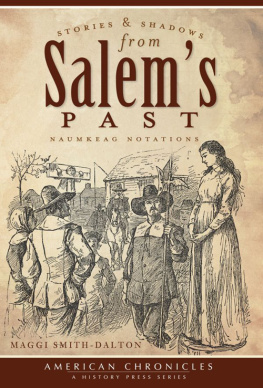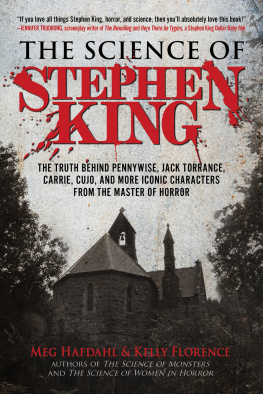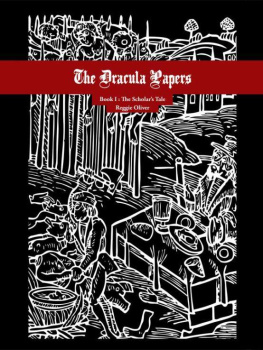1
Almost everyone thought the man and the boy were father and son.
They crossed the country on a rambling southwest line in an old Citron sedan, keeping mostly to secondary roads, traveling in fits and starts. They stopped in three places along the way before reaching their final destination: first in Rhode Island, where the tall man with the black hair worked in a textile mill; then in Youngstown, Ohio, where he worked for three months on a tractor assembly line; and finally in a small California town near the Mexican border, where he pumped gas and worked at repairing small foreign cars with an amount of success that was, to him, surprising and gratifying.
Wherever they stopped, he got a Maine newspaper called the Portland Press-Herald and watched it for items concerning a small southern Maine town named Jerusalems Lot and the surrounding area. There were such items from time to time.
He wrote an outline of a novel in motel rooms before they hit Central Falls, Rhode Island, and mailed it to his agent. He had been a mildly successful novelist a million years before, in a time when the darkness had not come over his life. The agent took the outline to his last publisher, who expressed polite interest but no inclination to part with any advance money. Please and thank you, he told the boy as he tore the agents letter up, were still free.
He said it without too much bitterness and set about the book anyway.
The boy did not speak much. His face retained a perpetual pinched look, and his eyes were dark-as if they always scanned some bleak inner horizon. In the diners and gas stations where they stopped along the way, he was polite and nothing more. He didnt seem to want the tall man out of his sight, and the boy seemed nervous even when the man left him to use the bathroom. He refused to talk about the town of Jerusalems Lot, although the tall man tried to raise the topic from time to time, and he would not look at the Portland newspapers the man sometimes deliberately left around.
When the book was written, they were living in a beach cottage off the highway, and they both swam in the Pacific a great deal. It was warmer than the Atlantic, and friendlier. It held no memories. The boy began to get very brown,
Although they were living well enough to eat three square meals a day and keep a solid roof over their heads, the man had begun to feel depressed and doubtful about the life they were living. He was tutoring the boy, and he did not seem to be losing anything in the way of education (the boy was bright and easy about books, as the tall man had been himself), but he didnt think that blotting salems Lot out was doing the boy any good. Sometimes at night he screamed in his sleep and thrashed the blankets onto the floor.
A letter came from New York. The tall mans agent said that Random House was offering $12,000 in advance, and a book club sale was almost certain. Was it okay?
It was.
The man quit his job at the gas station, and he and the boy crossed the border.
2
Los Zapatos, which means the shoes (a name that secretly pleased the man to no end), was a small village not far from the ocean. It was fairly free of tourists. There was no good road, no ocean view (you had to go five miles further west to get that), and no historical points of interest. Also, the local cantina was infested with cockroaches and the only whore was a fifty-year-old grandmother.
With the States behind them, an almost unearthly quiet dropped over their lives. Few planes went overhead, there were no turnpikes, and no one owned a power lawn mower (or cared to have one) for a hundred miles. They had a radio, but even that was noise without meaning; the news broadcasts were all in Spanish, which the boy began to pick up but which remained - and always would-gibberish to the man. All the music seemed to consist of opera. At night they sometimes got a pop music station from Monterey made frantic with the accents of Wolfman Jack but it faded in and out. The only motor within hearing distance was a quaint old Rototiller owned by a local farmer. When the wind was right, its irregular burping noise would come to their ears faintly, like an uneasy spirit. They drew their water from the well by hand.
Once or twice a month (not always together) they attended mass at the small church in town. Neither of them understood the ceremony, but they went all the same. The man found himself sometimes drowsing in the suffocating heat to the steady, familiar rhythms and the voices which gave them tongue. One Sunday the boy came out onto the rickety back porch where the man had begun work on a new novel and told him hesitantly that he had spoken to the priest about being taken into the church. The man nodded and asked him if he had enough Spanish to take instruction. The boy said he didnt think it would be a problem.
The man made a forty-mile trip once a week to get the Portland, Maine, paper, which was always at least a week old and was sometimes yellowed with dog urine. Two weeks after the boy had told him of his intentions, he found a featured story about salems Lot and a Vermont town called Momson. The tall mans name was mentioned in the course of the story.
He left the paper around with no particular hope that the boy would pick it up. The article made him uneasy for a number of reasons. It was not over in salems Lot yet, it seemed.
The boy came to him a day later with the paper in his hand, folded open to expose the headline: Ghost Town in Maine?
Im scared, he said.
I am, too, the tall man answered.
3
GHOST TOWN IN MAINE?
By John Lewis
Press-Herald Features Editor
JERUSALEMS LOT-Jerusalems Lot is a small town east of Cumberland and twenty miles north of Portland. It is not the first town in American history to just dry up and blow away, and will probably not be the last, but it is one of the strangest. Ghost towns are common in the American Southwest, where communities grew up almost overnight around rich gold and silver lodes and then disappeared almost as rapidly when the veins of ore played out, leaving empty stores and hotels and saloons to rot emptily in desert silence.
In New England the only counterpart to the mysterious emptying of Jerusalems Lot, or salems Lot as the natives often refer to it, seems to be a small town in Vermont called Momson. During the summer of 1923, Momson apparently just dried up and blew away, and all 312 residents went with it. The houses and few small business buildings in the towns center still stand, but since that summer fifty-two years ago, they have been uninhabited. In some cases the furnishings had been removed, but in most the houses were still furnished, as if in the middle of daily life some great wind had blown all the people away. In one house the table had been set for the evening meal, complete with a centerpiece of long-wilted flowers. In another the covers had been turned down neatly in an upstairs bedroom as if for sleep. In the local mercantile store, a rotted bolt of cotton cloth was found on the counter and a price of $1.22 rung up on the cash register. Investigators found almost $50.00 in the cash drawer, untouched.
People in the area like to entertain tourists with the story and to hint that the town is haunted-that, they say, is why it has remained empty ever since. A more likely reason is that Momson is located in a forgotten corner of the state, far from any main road. There is nothing there that could not be duplicated in a hundred other towns except, of course, the Mary Celeste -like mystery of its sudden emptiness.


















